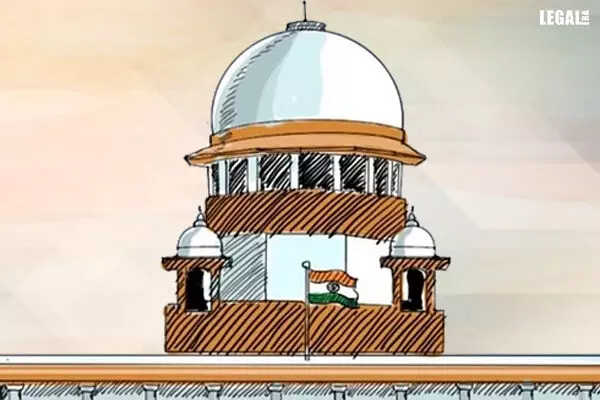- Home
- News
- Articles+
- Aerospace
- Agriculture
- Alternate Dispute Resolution
- Banking and Finance
- Bankruptcy
- Book Review
- Bribery & Corruption
- Commercial Litigation
- Competition Law
- Conference Reports
- Consumer Products
- Contract
- Corporate Governance
- Corporate Law
- Covid-19
- Cryptocurrency
- Cybersecurity
- Data Protection
- Defence
- Digital Economy
- E-commerce
- Employment Law
- Energy and Natural Resources
- Entertainment and Sports Law
- Environmental Law
- FDI
- Food and Beverage
- Health Care
- IBC Diaries
- Insurance Law
- Intellectual Property
- International Law
- Know the Law
- Labour Laws
- Litigation
- Litigation Funding
- Manufacturing
- Mergers & Acquisitions
- NFTs
- Privacy
- Private Equity
- Project Finance
- Real Estate
- Risk and Compliance
- Technology Media and Telecom
- Tributes
- Zoom In
- Take On Board
- In Focus
- Law & Policy and Regulation
- IP & Tech Era
- Viewpoint
- Arbitration & Mediation
- Tax
- Student Corner
- AI
- ESG
- Gaming
- Inclusion & Diversity
- Law Firms
- In-House
- Rankings
- E-Magazine
- Legal Era TV
- Events
- News
- Articles
- Aerospace
- Agriculture
- Alternate Dispute Resolution
- Banking and Finance
- Bankruptcy
- Book Review
- Bribery & Corruption
- Commercial Litigation
- Competition Law
- Conference Reports
- Consumer Products
- Contract
- Corporate Governance
- Corporate Law
- Covid-19
- Cryptocurrency
- Cybersecurity
- Data Protection
- Defence
- Digital Economy
- E-commerce
- Employment Law
- Energy and Natural Resources
- Entertainment and Sports Law
- Environmental Law
- FDI
- Food and Beverage
- Health Care
- IBC Diaries
- Insurance Law
- Intellectual Property
- International Law
- Know the Law
- Labour Laws
- Litigation
- Litigation Funding
- Manufacturing
- Mergers & Acquisitions
- NFTs
- Privacy
- Private Equity
- Project Finance
- Real Estate
- Risk and Compliance
- Technology Media and Telecom
- Tributes
- Zoom In
- Take On Board
- In Focus
- Law & Policy and Regulation
- IP & Tech Era
- Viewpoint
- Arbitration & Mediation
- Tax
- Student Corner
- AI
- ESG
- Gaming
- Inclusion & Diversity
- Law Firms
- In-House
- Rankings
- E-Magazine
- Legal Era TV
- Events
Supreme Court Questions Resolution Professional Filing Appeal Against NCLAT Order, Calls for Neutrality

Supreme Court Questions Resolution Professional Filing Appeal Against NCLAT Order, Calls for Neutrality
In the case of Regen Powertech Private Limited vs. Giriraj Enterprises and another, the Supreme Court recently raised objections to the Resolution Professional (RP) filing appeals against an order of the National Company Law Appellate Tribunal (NCLAT).
In its order issued on September 25, an Apex Court bench comprising Justices Sanjiv Khanna and SVN Bhatti noted that the involved Resolution Professional (RP) was anticipated to maintain a neutral stance.
The Court clarified that any appeal, if necessary, should have been submitted by the parties affected by the decision, including the corporate debtor or the committee of creditors (CoC).
"The Resolution Professional should have maintained a neutral stand. It is for the aggrieved parties, including the Committee of Creditors of Regen Powertech Private Limited (RPPL) and Regen Infrastructure and Services Private Limited (RISPL), to take appropriate proceedings or file an appeal before this Court," the Bench stated.
The case revolved around a claim of ₹1306.40 crore by the Committee of Creditors (CoC) representing Regen Powertech Pvt Ltd (the corporate debtor), with the State Bank of India leading the group of creditors.
In December 2019, the National Company Law Tribunal (NCLT) accepted the initiation of the Corporate Insolvency Resolution Process (CIRP) against Regen Powertech Private Limited (RPPL).
Following the CoC’s approval of a resolution plan, separate applications were filed by different parties requesting the consolidation of the Corporate Insolvency Resolution Processes (CIRPs) of RPPL and a related entity, Regen Infrastructure and Services Private Limited (RISPL).
The NCLT declined to consolidate the CIRPs and accepted the CoC resolution plan, resulting in appeals being filed with the NCLAT. The NCLAT allowed these appeals and ordered the consolidation of the CIRPs, which subsequently led to an appeal being filed with the Supreme Court by the Resolution Professional.
The Bench dismissed the Resolution Professional’s appeal. It, however, indicated its willingness to seek the assistance of the RP in handling any future appeals that might be filed by the Committee of Creditors (CoC) or third parties.
The appellant, represented by Senior Advocate Guru Krishna Kumar along with advocates K Parameshwar, MV Mukunda, AG Sathyanarayana, Mithun Shashank, Kanti, Arti Gupta, Ashwin K, and Nishanth Patil, appeared before the Court.



